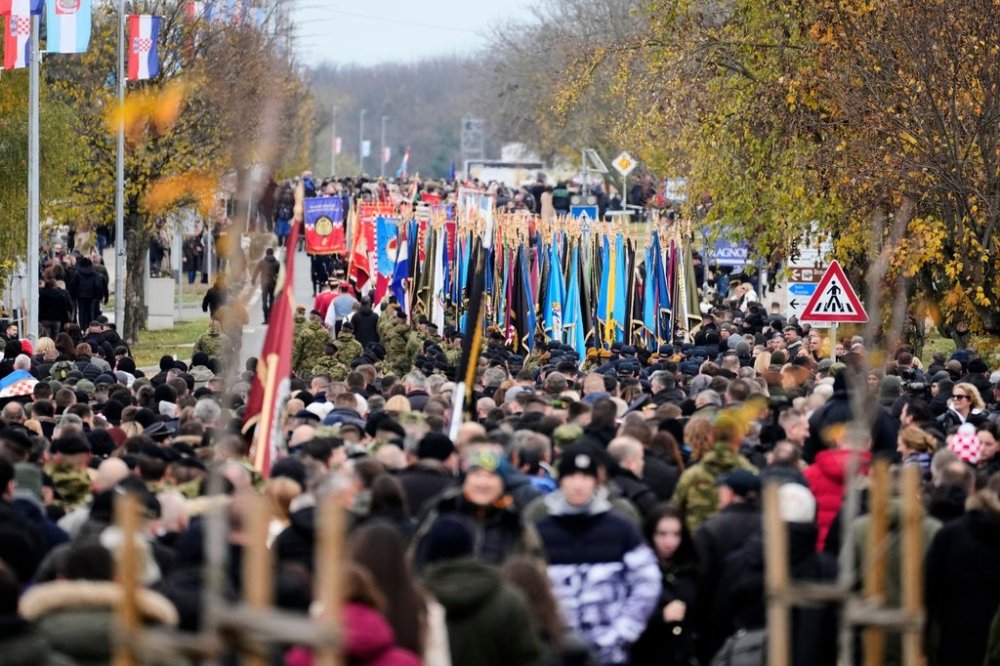Croatians commemorate the siege of Vukovar, a national symbol of the war of independence
Advertisement
Read this article for free:
or
Already have an account? Log in here »
To continue reading, please subscribe:
Monthly Digital Subscription
$0 for the first 4 weeks*
- Enjoy unlimited reading on winnipegfreepress.com
- Read the E-Edition, our digital replica newspaper
- Access News Break, our award-winning app
- Play interactive puzzles
*No charge for 4 weeks then price increases to the regular rate of $19.00 plus GST every four weeks. Offer available to new and qualified returning subscribers only. Cancel any time.
Monthly Digital Subscription
$4.75/week*
- Enjoy unlimited reading on winnipegfreepress.com
- Read the E-Edition, our digital replica newspaper
- Access News Break, our award-winning app
- Play interactive puzzles
*Billed as $19 plus GST every four weeks. Cancel any time.
To continue reading, please subscribe:
Add Free Press access to your Brandon Sun subscription for only an additional
$1 for the first 4 weeks*
*Your next subscription payment will increase by $1.00 and you will be charged $16.99 plus GST for four weeks. After four weeks, your payment will increase to $23.99 plus GST every four weeks.
Read unlimited articles for free today:
or
Already have an account? Log in here »
VUKOVAR, Croatia (AP) — Croatia on Tuesday marked the anniversary of the fall of Vukovar, which was demolished by the Serb-led Yugoslav army during the 1991-95 war and became a symbol of resistance and national unity during the conflict.
Senior officials joined thousands of people, many carrying national flags and banners, for the commemoration march through the eastern town.
Walking in silence, marchers lit candles and lay flowers during the event which has been held annually since the end of the war, reflecting its importance for the nation.

More than 10,000 people died in the war that started after the country declared independence from the Serb-led Yugoslav federation, triggering a rebellion by the minority Serbs who took control of swaths of Croatian territory.
The Yugoslav army shelled Vukovar during an 87-day siege, reducing it practically to rubble. Hundreds of people were killed after the town’s fall in November 1991 and their bodies were dumped in a mass grave at a nearby pig farm.
The war ended in 1995 after Croatia retook most of the territories that had been held by the Serb rebels. Tens of thousands of Serbs then fled the offensive.
Since then, Croatia has viewed Vukovar as a martyr of the country’s resistance against “ Serb aggression.”
Ethnic tensions have simmered in Croatia, and with neighboring Serbia ever since the war. Extremists recently disrupted Serb cultural events in the capital, Zagreb, and in the coastal town of Split, further fueling tensions. An ethnic Serb organization cancelled an exhibition in Vukovar ahead of Tuesday’s ceremonies, fearing problems.
NATO-member Croatia, with a population of 3.8 million people, became the European Union’s newest member state when it joined in 2013.

